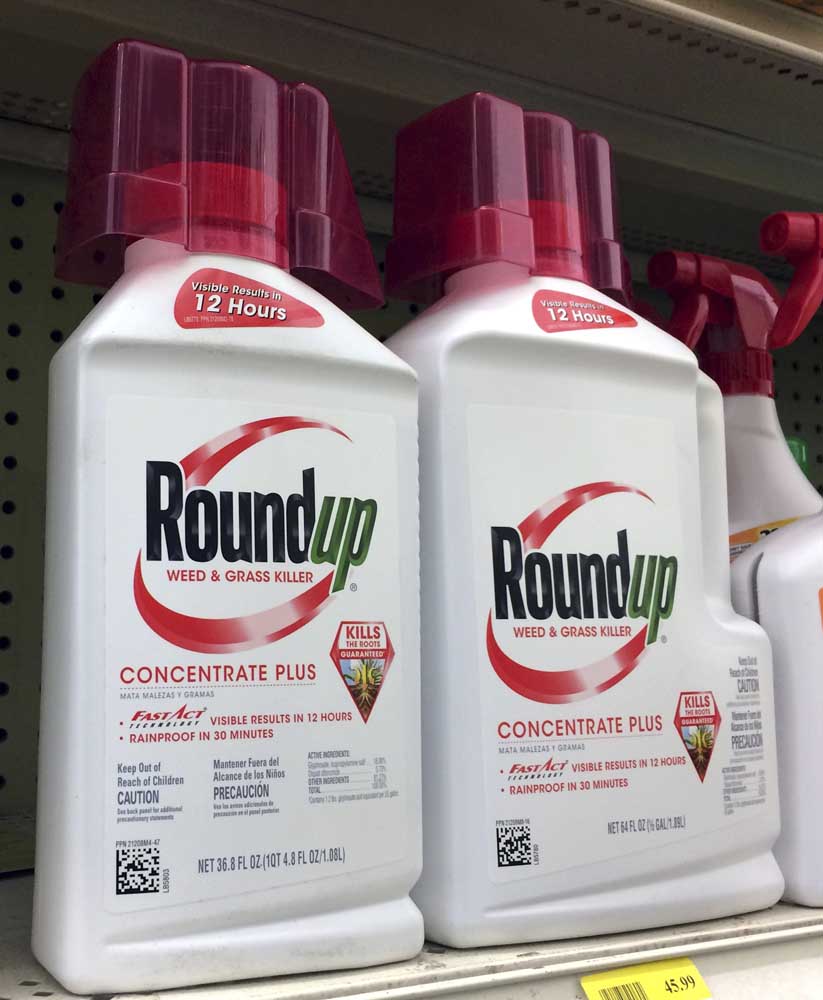Oregon Court of Appeals rejects federal pre-emption of glyphosate cancer lawsuit
Published 1:30 pm Friday, July 12, 2024

- Monsanto's Roundup herbicides
Lawsuits claiming glyphosate herbicides cause cancer aren’t precluded in Oregon by the federal government’s regulation of pesticides, according to a state appellate court.
The Oregon Court of Appeals has ruled the Federal Insecticide, Fungicide and Rodenticide Act doesn’t pre-empt such state law claims against pesticide manufacturers, agreeing with two federal appellate court decisions.
The ruling relates to a complaint filed by Larry Johnson, a resident of Jackson County, who claimed he’d developed non-Hodgkin’s lymphoma from years of spraying the Monsanto Co.’s “Roundup” brand of glyphosate herbicides.
Monsanto’s federal pre-emption arguments against his lawsuit are “foreclosed” by earlier “well-reasoned” opinions from the 9th U.S. Circuit Court of Appeals, which has jurisdiction over nine Western states, and the 11th Circuit, which covers three Southeastern states, according to the state’s Court of Appeals.
In 2021, the 9th Circuit found that FIFRA’s labeling requirements don’t prevent plaintiffs from accusing pesticide manufacturers of violating state “failure-to-warn” laws regarding the cancer risks of their products.
In 2024, the 11th Circuit similarly rejected federal pre-emption arguments from Monsanto, which is now owned by Bayer, a multinational chemical company based in Germany.
Apart from the question of federal pesticide pre-emption, the Oregon Court of Appeals decided the plaintiff was wrongly prevented from supporting his claims with testimony from an agricultural economist.
A jury in Jackson County rejected the plaintiff’s claims against Monsanto after a trial in which the judge excluded the testimony of Charles Benbrook, an agricultural economist who planned to explain how the U.S. Environmental Protection Agency regulates pesticides.
The plaintiff planned to rely on Benbrook’s expertise to argue that EPA doesn’t conduct its own pesticide studies and failed to follow its own guidelines in regulating Roundup, but the judge said he wasn’t qualified to testify on the issue.
The state’s Court of Appeals has now overturned that decision, citing Benbrook’s doctorate in agricultural economics, numerous peer-reviewed articles and involvement in pesticide regulation as a former Congressional staffer, among other qualifications.
While he didn’t have direct responsibility for pesticide enforcement, “that does not mean Benbrook is not qualified to testify about pesticide regulations under FIFRA,” the ruling said.
In light of the “theories of the case” and the “complex regulatory scheme” involved, the judge erred in finding that Benbrook’s testimony wouldn’t be helpful, the ruling said.
Because the decision to exclude Benbrook’s testimony was “not harmless” to the plaintiff’s case, the appellate court has overturned the judgment and remanded the lawsuit to Jackson County Circuit Court.
Despite prevailing in the jury verdict, Monsanto also challenged the judge’s decision not to issue a “directed verdict” dismissing the case due to federal pesticide regulations. That argument was rejected by the appellate court, resulting in its agreement with the 9th and 11th Circuits on pesticide pre-emption.






